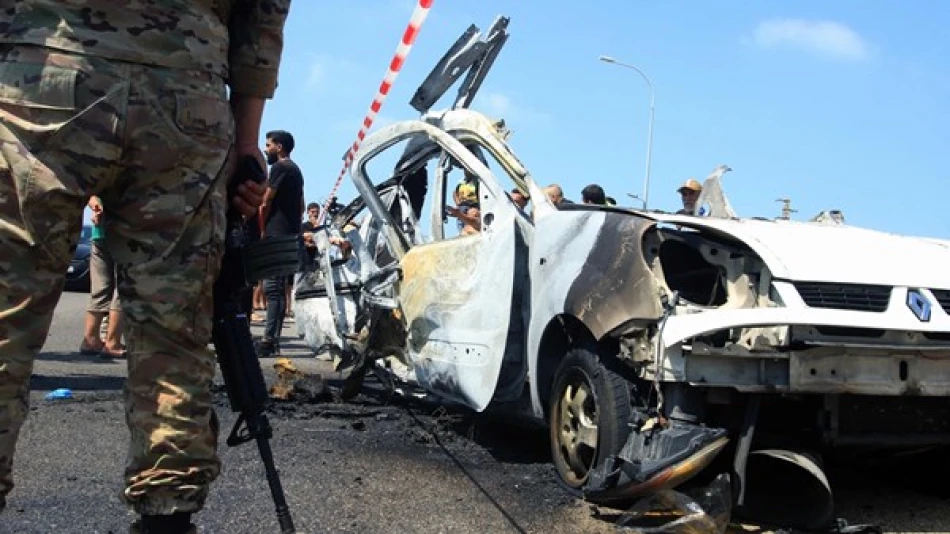
Lebanese Army Soldiers Killed in Munitions Malfunction Incident
Lebanon Military Tragedy Exposes Deadly Legacy of Recent Conflict
At least six Lebanese Army soldiers died Saturday when munitions exploded during a disposal operation near Tyre in southern Lebanon, highlighting the dangerous aftermath of the recent Israel-Hezbollah conflict and the complex security challenges facing Lebanon's newly installed government under President Joseph Aoun.
Engineering Unit Hit During Routine Clearance
The fatal explosion occurred as an army engineering unit worked to remove and disable unexploded ordnance in the area between the towns of Majdalzoun and Zabqine in the Tyre district. According to Lebanon's National News Agency, the blast also wounded several other military personnel during what should have been a standard munitions disposal operation.
President Aoun was briefed on the incident by Army Commander General Rudolf Hekel, with the presidency describing it as a "painful accident" that claimed military lives while soldiers performed their national duty. Prime Minister Nawaf Salam also mourned the fallen soldiers, emphasizing their sacrifice in service to the country.
Southern Lebanon's Explosive Inheritance
The tragedy underscores the lethal legacy left across southern Lebanon following the intense bombardment during the recent 60-day conflict between Israel and Hezbollah that ended in late November. The region remains littered with unexploded ordnance, cluster munitions, and damaged infrastructure that poses ongoing risks to both military personnel and civilians.
Lebanon's army has been tasked with clearing these dangerous remnants while simultaneously working to establish state control in areas previously dominated by Hezbollah. This dual mission places enormous strain on the military's resources and personnel, as evidenced by Saturday's deadly incident.
Broader Implications for Lebanon's Stability
The soldiers' deaths come at a critical juncture for Lebanon, which recently elected Joseph Aoun as president after a two-year political vacuum. The new administration faces the monumental challenge of rebuilding war-torn areas while asserting state authority in regions where Hezbollah previously held sway.
International observers view the army's clearance operations as essential for implementing UN Security Council Resolution 1701, which calls for Lebanese state forces to maintain security in the south. However, Saturday's explosion demonstrates the human cost of this mission and the technical expertise required for safe munitions disposal.
The incident may prompt calls for increased international assistance in explosive ordnance disposal, similar to programs implemented in post-conflict zones like Iraq and Afghanistan. Lebanon's military, while respected domestically, lacks the specialized equipment and training needed for large-scale clearance operations following such intensive bombardment.
Testing Lebanon's New Leadership
For President Aoun, a former army commander himself, the loss of soldiers in his former institution represents both a personal tragedy and an early test of his leadership. How his administration responds—whether by seeking international technical assistance or requesting additional resources for the military—will signal his approach to Lebanon's post-conflict reconstruction challenges.
The incident also highlights the fragile security situation that could complicate efforts to attract international investment and donor support for Lebanon's economic recovery. Until southern Lebanon is fully cleared and secured, the region remains a symbol of the country's unresolved conflicts rather than its potential for renewal.
Most Viewed News

 Layla Al Mansoori
Layla Al Mansoori






